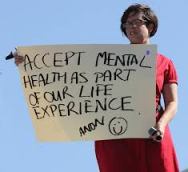 Whatever your opinion of the Affordable Care Act, you must admit that it’s good to see the American public talk about reducing health care costs, offering more efficient delivery systems, and expanding health care services to more of our nation’s people. There’s no easy (or cheap) way to provide health care to all Americans, particularly with the inefficiencies and absurdities that characterize our current health care system, but it’s certainly goal worth pursuing.
Whatever your opinion of the Affordable Care Act, you must admit that it’s good to see the American public talk about reducing health care costs, offering more efficient delivery systems, and expanding health care services to more of our nation’s people. There’s no easy (or cheap) way to provide health care to all Americans, particularly with the inefficiencies and absurdities that characterize our current health care system, but it’s certainly goal worth pursuing.
However, there’s more to the story than just expanding coverage to more Americans. There’s also the issue about improving the quality of that coverage. If you listen to the politicians and pundits, you might get the impression that the most important goal is to insure more people, when in fact insurance may leave us with worse outcomes in the end.
Take, for example, an Op-Ed by Richard Friedman, MD, published in the New York Times in July. The title says it all: “Good News For Mental Illness in Health Law.” Dr Friedman makes the observations that seem de rigueur for articles like this one: “Half of Americans will experience a major psychiatric disorder,” “mental illnesses are chronic lifelong diseases,” and so forth. Friedman argues that the Affordable Care Act will—finally!—give these people the help they need.
Sounds good, right? Well, not so fast. First of all, there are two strategies in the ACA to insure more patients: (1) the individual mandate, which requires people to purchase insurance through the state health-insurance exchanges, and (2) expansion of Medicaid, which may add another 11 million more people to this public insurance plan.
 So more people will be insured. But where’s the evidence that health insurance—whether private or public—improves outcomes in mental health? To be sure, in some cases, insurance can be critically important: the suicidal patient can be hospitalized for his safety; the substance-abusing patient can access rehabilitation services; and the patient with bipolar disorder can stay on her mood stabilizing medication and keep her job, her family, and her life. But there are many flavors of mental illness (i.e., not everything called “bipolar disorder” is bipolar disorder), and different people have different needs. That’s the essence of psychiatry: understanding the person behind the illness and delivering treatment accordingly. Individualized care is a lot harder when millions of people show up for it.
So more people will be insured. But where’s the evidence that health insurance—whether private or public—improves outcomes in mental health? To be sure, in some cases, insurance can be critically important: the suicidal patient can be hospitalized for his safety; the substance-abusing patient can access rehabilitation services; and the patient with bipolar disorder can stay on her mood stabilizing medication and keep her job, her family, and her life. But there are many flavors of mental illness (i.e., not everything called “bipolar disorder” is bipolar disorder), and different people have different needs. That’s the essence of psychiatry: understanding the person behind the illness and delivering treatment accordingly. Individualized care is a lot harder when millions of people show up for it.
I’ve worked in insurance settings and Medicaid settings. I’ve seen first-hand the emphasis on rapid treatment, the overwhelming urge to medicate (because that’s generally all we psychiatrists have time—and get paid—to do in such settings), and the underlying “chronic disease” assumption that keeps people persistently dependent on the psychiatric system. This model does work for some patients. But whether it “works” for all—or even most—patients seems to be less important than keeping costs low or enrolling as many people as possible for our services.
 These demands are not only external; they have become part of the mindset of many psychiatrists. I spent my last year of residency training, for instance, in a public mental health system, where I was a county employee and all patients were Medicaid recipients. I walked away with a sense that what mattered was not the quality of care I provided, nor whether I developed treatment plans that incorporated people’s unique needs, nor whether my patients even got better at all. Instead, what was most important (and what we were even lectured on!) was how to write notes that satisfied the payers, how to choose medications on the basis of a 20- or 30-minute (or shorter) assessment, and how not to exceed the 12 annual outpatient visits each patient was allotted. To make matters worse, there was no way to discharge a patient without several months of red tape—regardless of whether the patient no longer needed our services, or was actually being harmed by the treatment. The tide has definitely turned: tomorrow’s psychiatrists will answer to administrators’ rules, not the patients’ needs—and this generation of trainees will unfortunately never even know the difference.
These demands are not only external; they have become part of the mindset of many psychiatrists. I spent my last year of residency training, for instance, in a public mental health system, where I was a county employee and all patients were Medicaid recipients. I walked away with a sense that what mattered was not the quality of care I provided, nor whether I developed treatment plans that incorporated people’s unique needs, nor whether my patients even got better at all. Instead, what was most important (and what we were even lectured on!) was how to write notes that satisfied the payers, how to choose medications on the basis of a 20- or 30-minute (or shorter) assessment, and how not to exceed the 12 annual outpatient visits each patient was allotted. To make matters worse, there was no way to discharge a patient without several months of red tape—regardless of whether the patient no longer needed our services, or was actually being harmed by the treatment. The tide has definitely turned: tomorrow’s psychiatrists will answer to administrators’ rules, not the patients’ needs—and this generation of trainees will unfortunately never even know the difference.
The great irony in this whole debacle is that those who argue loudest for expansion of health care also tend to be those who argue for more humanistic and compassionate treatment. In a similar vein, some of the most conscientious and compassionate doctors I know—many of them supporters of Obamacare—have deliberately chosen to work outside of insurance or Medicaid/Medicare altogether. (I can’t say that I blame them, but isn’t that sort of like singing the praises of public education but sending your kids to private school?) With more people obtaining mental health care through insurance “benefits,” the current model will become more widespread: we’ll continue overprescribing unnecessary drugs to children and adults, institutionalizing people against their will even when less restrictive options may be more effective, offering lower reimbursements for psychotherapy and complementary services, and inviting practitioners with lesser training and experience (and whose experience is often limited exclusively to offering pills) to become the future face of mental health care.
 Do psychiatry’s leaders say anything about these issues? No. When they’re not lamenting the lack of new pharmaceutical compounds or attacking those who offer valid critiques of modern-day psychiatry, they’re defending the imperfect DSM-5 and steadfastly preserving our right to prescribe drugs while the pharmaceutical industry is more than happy to create new (and costly) products to help us do so. One solution may be to train psychiatrists to be cognizant of the extraordinary diversity among individuals who seek psychiatric help, to understand the limitations of our current treatments, and to introduce patients to alternatives. While this may be more expensive up front, it may actually save money in the future: for example, thorough diagnostic assessments by more seasoned and experienced providers may direct patients away from expensive office-and-medication-based treatment, and towards community-based services, self-help programs, talk therapy when indicated or desired by the patient, social work services, or any of a number of alternative resources geared towards true recovery.
Do psychiatry’s leaders say anything about these issues? No. When they’re not lamenting the lack of new pharmaceutical compounds or attacking those who offer valid critiques of modern-day psychiatry, they’re defending the imperfect DSM-5 and steadfastly preserving our right to prescribe drugs while the pharmaceutical industry is more than happy to create new (and costly) products to help us do so. One solution may be to train psychiatrists to be cognizant of the extraordinary diversity among individuals who seek psychiatric help, to understand the limitations of our current treatments, and to introduce patients to alternatives. While this may be more expensive up front, it may actually save money in the future: for example, thorough diagnostic assessments by more seasoned and experienced providers may direct patients away from expensive office-and-medication-based treatment, and towards community-based services, self-help programs, talk therapy when indicated or desired by the patient, social work services, or any of a number of alternative resources geared towards true recovery.
Alas, no one seems to be offering that as an alternative. Instead, we’re patting ourselves on the back for expanding health care coverage to more people and developing cost-saving initiatives of dubious benefit. Somewhere along the way, we seem to have forgotten what “care” really means. I wonder when we’ll start figuring that one out.



 Posted by stevebMD
Posted by stevebMD 










